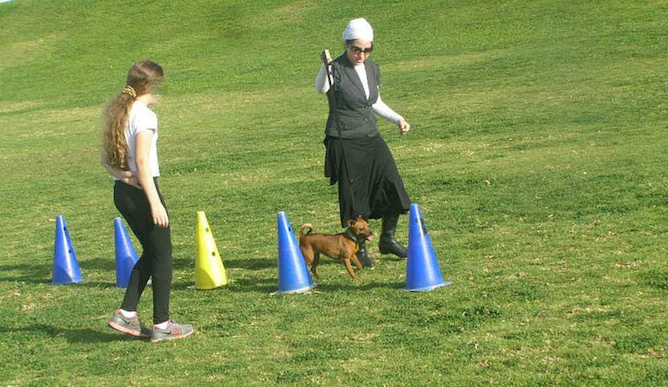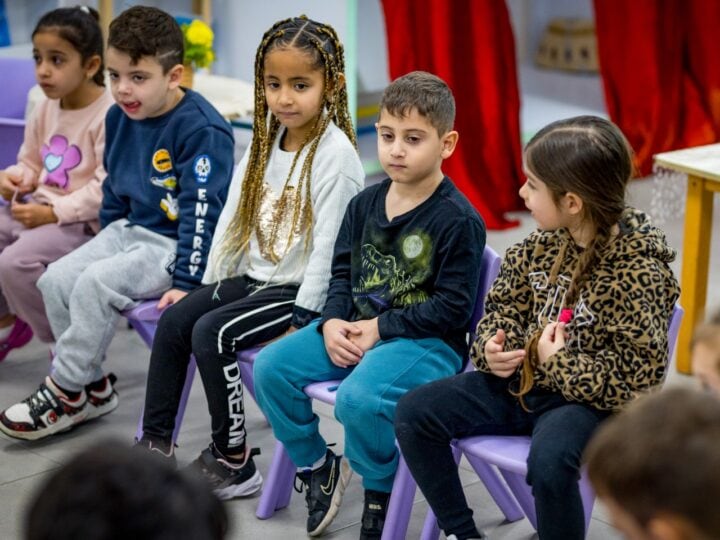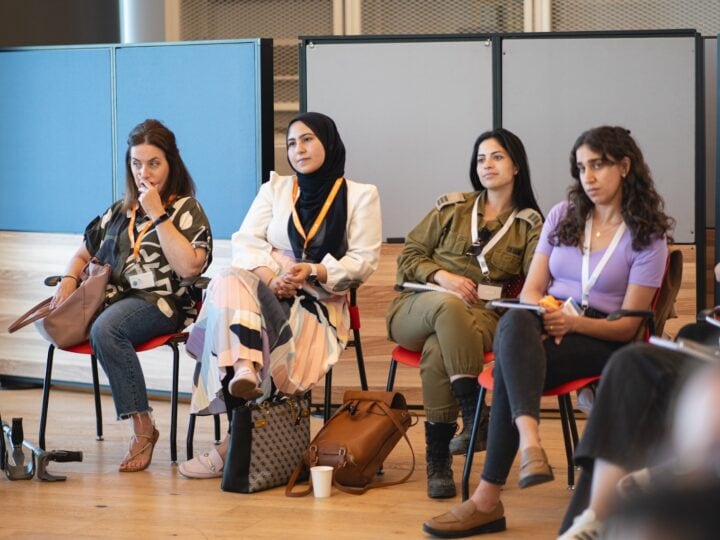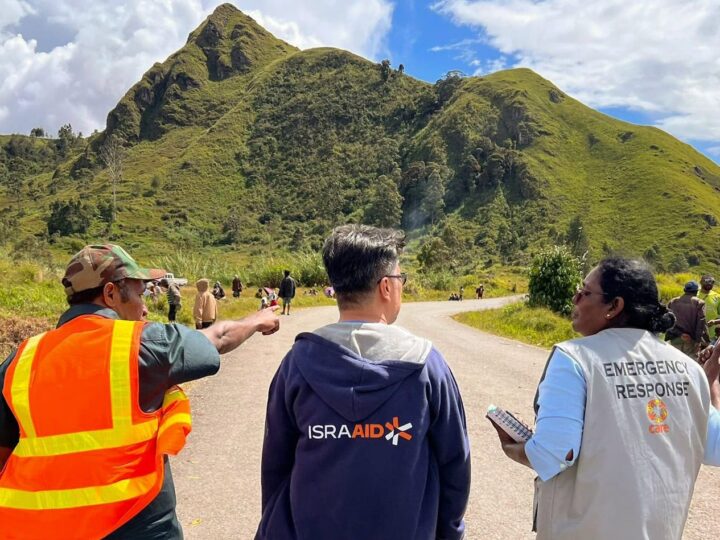By age 15, “Rina” had already lost her father to drugs and her mother to suicide. While living in an Israeli facility for troubled girls, she met the dog that changed her life.
The pivotal pup is one of 60 therapy dogs – themselves rescued from the streets or shelters in Israel – at Dogs for People in a small Israeli town between Ashdod and Ashkelon. Founded in 2006 by trainer Paul Elmakes, Dogs for People uses dog-handling courses to build human participants’ self-esteem.
“Through the happiness and joy that [Rina] received from the dog, she was able to find the strength to fight her own battles, and eventually took a professional course for dog trainers sponsored by one of our donors,” says Elmakes’ business partner, Asia Pavis.
Rina is now 18 and working part time at Dogs for People and also as a veterinary assistant. She hopes to serve in the Israeli military’s canine unit.
Pavis has no shortage of similar success stories. Some 6,000 Israeli children and youth, both at risk and with special needs, have so far participated in Dogs for People’s 70 weekly activities in 13 cities.
“We have five vehicles in which we take 12 dogs each, going throughout Israel visiting many kids in hostels, schools, kindergartens and community centers,” Pavis tells ISRAEL21c.
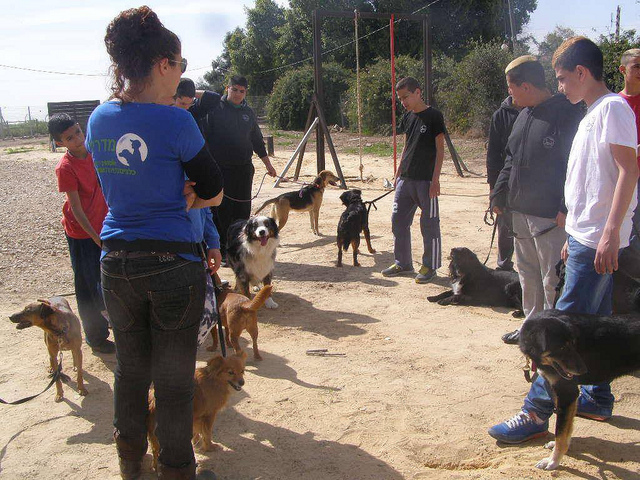
- Dog-handling builds teens’ self-esteem.
This unique program was the brainchild of Elmakes, who realized early in his career that solving a pet dog’s discipline problem must involve the entire human family. If the owners learn to be more assertive and calm, the dog will mirror their behavior.
“The more he worked with families and kids, the more sure he was that dogs can be used as a therapeutic tool,” says Pavis, who comes from a social-work background. “He started some groups for youth at risk and autistic kids, voluntarily at first, to find out for himself what works and what doesn’t.”
Dogs are the therapists
The therapeutic and educational model eventually devised by the two 30-somethings is “a kind of circle in which each part develops with the other,” says Pavis. “We save dogs, rehabilitate them and train them to be therapy dogs, then we take them to youth who develop a deep connection with the dogs, and through that the kids work on themselves.”
The method rests on the principle that teaching children to deal with dogs assertively and calmly requires them to learn how to strike a fine balance between aggressiveness and passivity for themselves.
“They have to find this middle place that is the right way to treat the dogs, because the dogs will only listen that way,” Pavis says. “The dogs are the main therapists in this relationship.”
Behavioral modifications are easily seen in program participants as well as in their canine partners, who in the process are trained to perform in competitions. Both outcomes result from the unique relationship each child builds with these mixed-breed animals that had previously been abandoned.
“What matters is not the breed, but how tolerant and easygoing the dog is, so that we can take them to activities without any risk to participants,” says Pavis. “These are dogs that are not exactly good-looking and fancy; they’re the leftovers.”
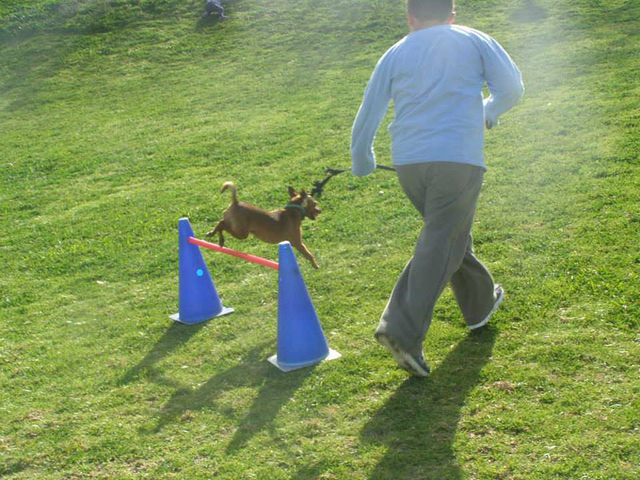
- “The dog is the therapist.”
Pups help with PTSD
Because Dogs for People is situated in the coastal area that often experiences the trauma of rocket fire from nearby Gaza, many clients are suffering from post-traumatic stress disorder (PTSD).
Pavis tells of eight-year-old “Leor,” whose house was hit several times by missiles. He became so fearful, she says, that he couldn’t bear to be alone and frequently got into scrapes at school. Dogs for People first assigned him to its smallest dog because he was afraid of the animals.
“Then he went on to bigger and bigger dogs as he learned to overcome his fear, and used those same techniques to overcome his social fears and his fears of bombings,” says Pavis. “He can use this tool in all aspects of life.”
Last year, at age 12, Leor again found his hometown under attack. “That was this kid’s big test, and it was amazing to see how he managed and controlled his fears,” says Pavis. He even won a gold medal in one of the agility competitions that Dogs for People holds several times a year.
“All the participants in our projects meet at these competitions to show off their new skills,” she explains.
Then there was “Maya,” who has attention-deficit hyperactivity disorder. Her parents bought her a dog for her 11th birthday and approached Dogs for People to help motivate her to concentrate on a worthwhile activity.
“With time, she became pretty good at handling her dog, and competed in our agility competitions. She became very enthusiastic about the training and very active in every volunteer area she could,” says Pavis. “Now she is 16 and is a guide herself — one of our best. Using the tools she got here, she’s able to be a leader in other parts of her life, too.”
Autistic children speak
Maya’s progression to leadership began when the organization’s guides began taking her along to work with autistic children.
“We often work with children who have autism, retardation or mental disabilities,” says Pavis.
Autistic children respond well to the highly communicative canines. “This is good for kids who have trouble expressing themselves to the outer world. The dog gives them a reward and motivation to keep trying to reach out and connect and not stay in their bubble. We see that children who didn’t speak a word are starting to speak to the dogs.”
The non-profit organization works in close collaboration with the Israeli ministries of health and social welfare, with local authorities and with national organizations such as Kedum Noar, AMEN, the Israel Association for Community Centers, and the Karen Karev Foundation.
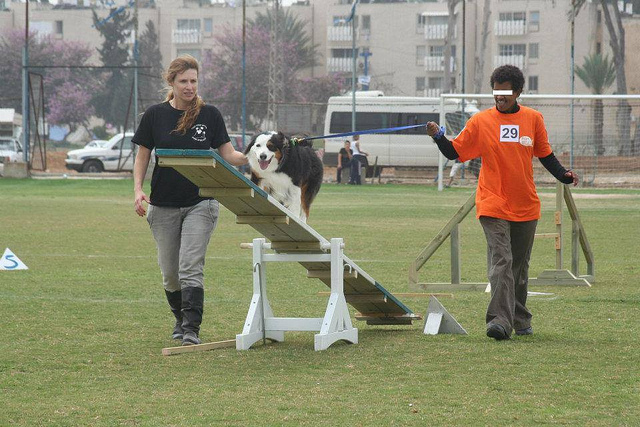
- A Dogs for People agility competition in Sderot.
Pavis says half the NIS 1.7 million annual budget comes from the government, and the other half from donations (Asia.dfp@gmail.com).
The paid staff includes four people in the office, three people with special needs who work in the kennel, and 10 guides. Four National Service volunteers are helped by convicts doing community service, as well as at-risk youth.
“We encourage some of the at-risk teens we work with to join us as volunteers in activities for kids with special needs,” Pavis says. “These youth, who have been unsuccessful in school and life, really connect to the kids with special needs. The program benefits each participant, because no matter where you come from, you always have something to give back.”




